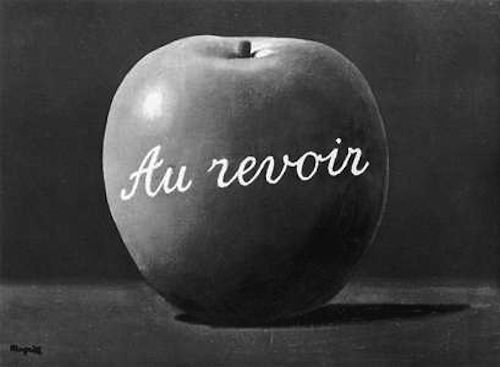On Knowing: Quasi-intelligibility, or Good-bye National Poetry Month!
BY Roger Reeves

In On Photography, Susan Sontag discusses Walter Benjamin’s ideal work of literary criticism. According to Sontag, for Benjamin, the ideal work of literary of criticism would be made up of nothing but quotes. Sontag writes: “Benjamin’s own ideal project reads like a sublimated version of the photographer’s activity. This project was a work of literary criticism that was to consist entirely of quotations, and would thereby be devoid of anything that might betray empathy.” While I embrace the Surrealist “sensibility” of the enterprise as well as the affective and intellectual community one builds through putting many different perspectives into conversation, I wholeheartedly disavow the notion that literary criticism needs to disavow empathy. That argument is for a different time and place; maybe, something like a dissertation or scholarly book. Nevertheless, I find the challenge of trying to create an essay using nothing but the words of others quite an exquisite exercise. Below, you will find such a short piece of “literary criticism.” For my source material, I have limited myself to the blogs posted over the last month on Harriet. Here we go.
*
All art is collaboration. You collaborate with your culture, your language, your reading ….This is such an old chestnut of mine by now, but I can’t help feeling it needs some continual putting across …Greetings, poetry lovers! This month’s for you! ….I’ve been thinking, obviously about audience—more particularly, about the relationship between the artist and his or her audience….But rather than banish audience from the scene of creation, we might do better to expand our ways of thinking about people who do or may engage our work …quasi-unintelligibility…
For as long as I can remember I’ve been sensitive to the distance between an object of thought or perception and any given way of expressing it, knowing that the most efficient, utile, or commonplace way of putting it might be appropriate for the daytime, so to speak, or in the marketplace, but at night, and in the forest, all bets are off—or else they should be. A sharpened pencil might become “a stick of gold with lead in it, excited to a point.” A glass of water might transform into a “liquid clearness contained in a slower liquid clearness, interrupted by solids of the first clearness.” And somehow, sometimes, to reconceive the near-at-hand in a way surpassing that in which routine and its dry tongue compels one to experience it has seemed like more than just recreation or refreshment—it has felt like a necessary refusal, a saving mutiny….
The thing we least understand about previous poetry culture is that, in certain ways, they were more concerned with pleasure than we are. Surprise! Just look how much more we value Originality than they did. That’s a good index of what I’m saying. They had their sights fixed on Good. In a choice between {Good} and {Original}, they picked {Good}. We pick Original because we trust that Original is Good.
*
I am a fan of word drunk music; music with a great melody or beat and something under the hood lyric-wise .
*
The question of poetry’s cultural relevance always seems misplaced. If it has to do with numbers, how many through the turnstiles, how many copies sold, that’s the publisher’s and administrator’s lookout.
*
Now we’ll see who has the stamina .…Beauty brings copies of itself into being …..Copies of beauty in this sense allow us to collide with the immortal.
*
I think of language as an animate non-object (a shape) yet is also an ether (an idea that permeates). I think of of history—especially structural histories—as repeating and mutating patterns, reanimated across time and culture and bodies to provide a backdrop, or an overlay, or a dissonant harmonics…Reanimation is a substitution across time. A thing (or image) is not the same thing in a different context, yet it is the same thing. Translation substitutes one thing for another, and is no substitute. The world is what it is and shimmers just on the edge of being able to be something more, something different, something beyond. The instruments are instruments and are something other instruments. Nothing else will do for something elseness.
*
I will sit on my porch and will the daffodils to open.
***
Quotes from:
Bill Berkson quoting B.B. in “Code Unknown: The Golden Rule”
Evie Shockley, “The Audience is Present (Part 1)”
Evie Shockley, “The Audience is Present (Part III)”
Timothy Donnelly qtd. Helen Vendler, “Quasi-unintelligibility (Part 1)”
Timothy Donnelly, “Quasi-unintelligibility (Part 1)”
Anthony Madrid, “Miscellany (I)”
Cornelius Eady, “Roll Over Ezra: Musical Adventures with a Literary Band”
Bill Berkson, “Code Uknown: Reading Writing”
Bill Berkson qtd. Ron Padgett in “Code Unknown: Reading Writing”
Camille Guthrie qtd. Elaine Scarry, “Bothered Beauty”
Camille Guthrie, “Bothered Beauty”
Jen Hofer, “Deterritorializations: Patterning and Incongruities”
Camille Guthrie, “On Depression, Poets, & Candy”
Roger Reeves (he/him) is the author of Best Barbarian (W.W. Norton & Company, 2022), a finalist for ...
Read Full Biography

